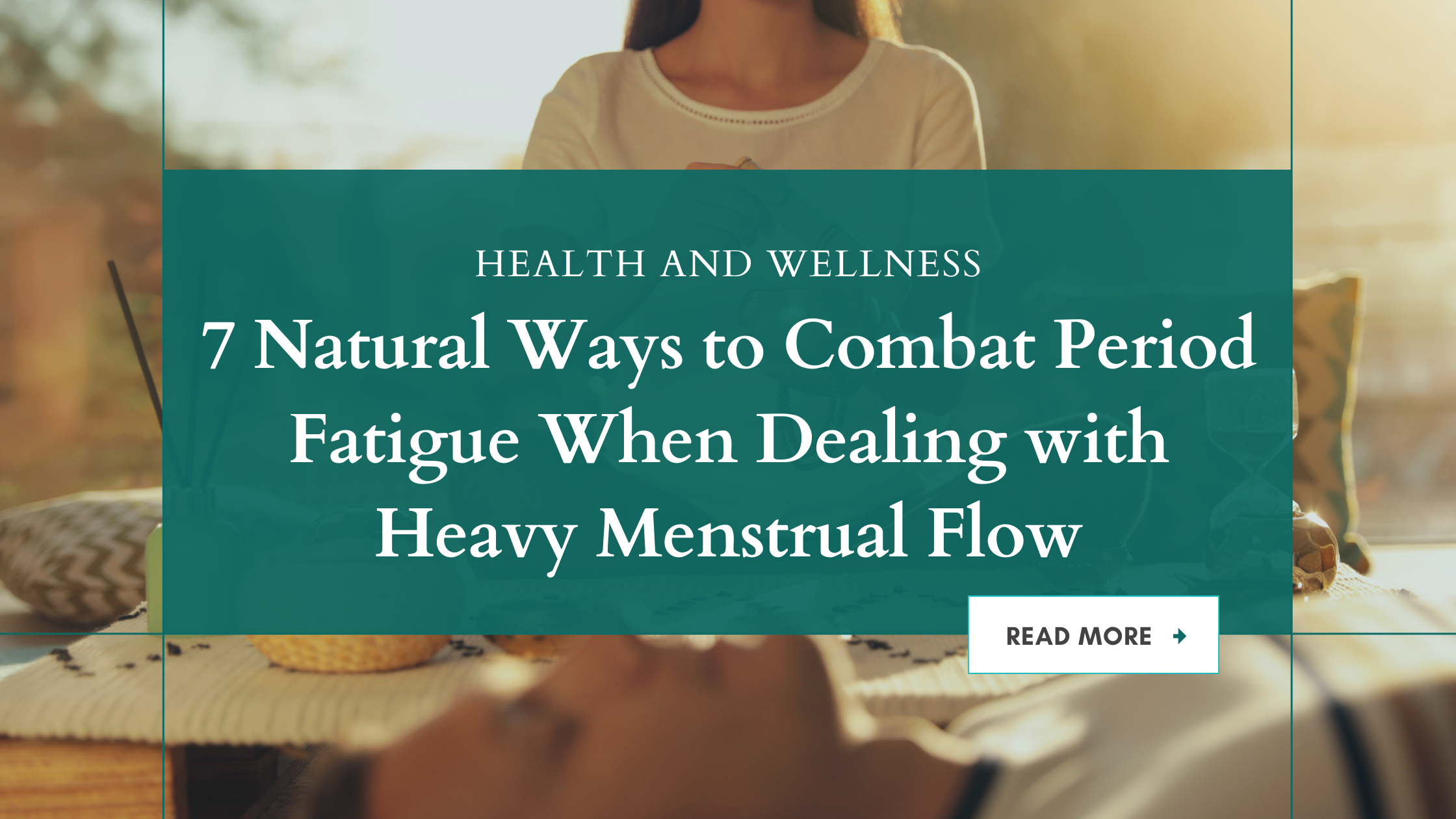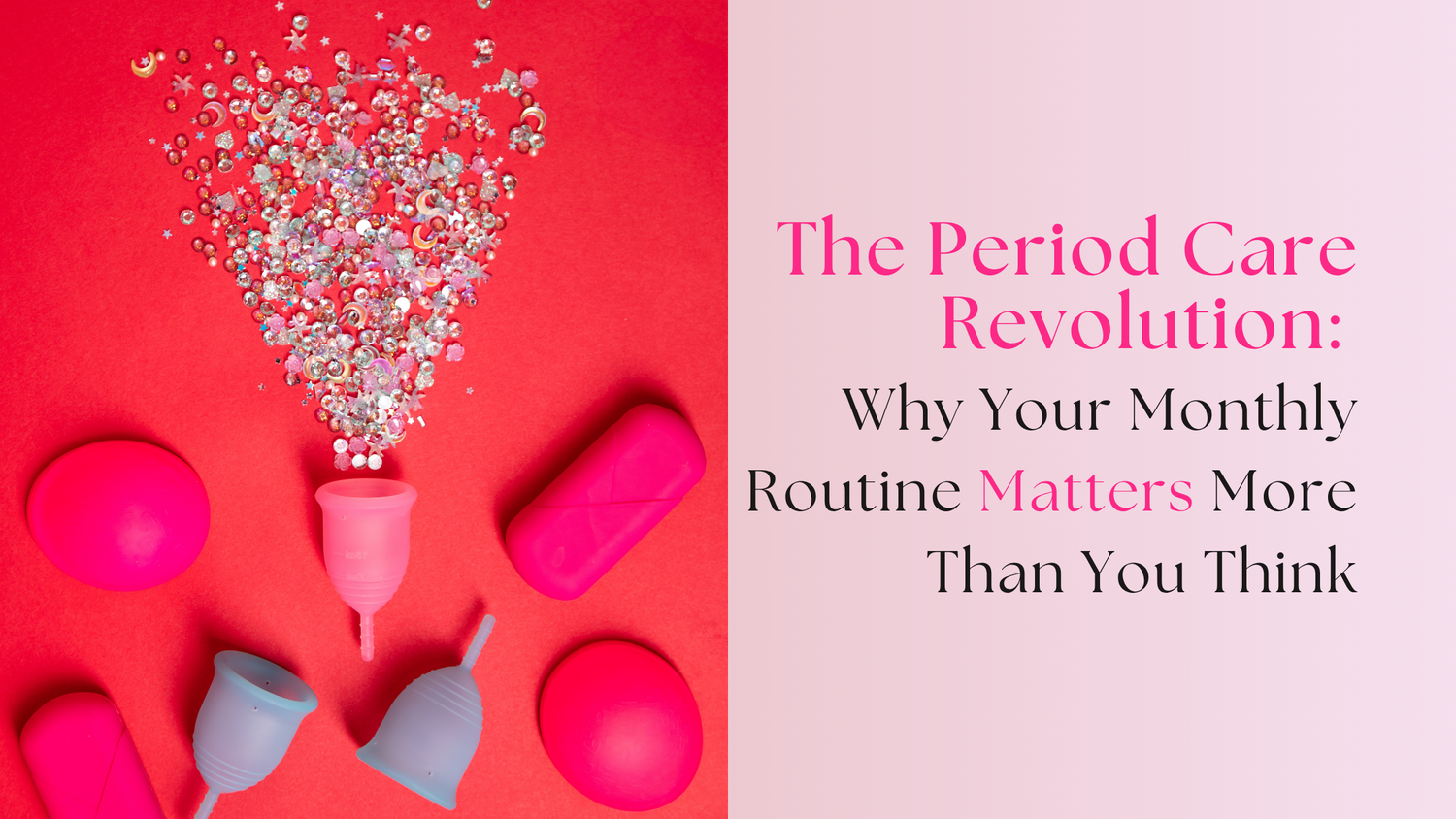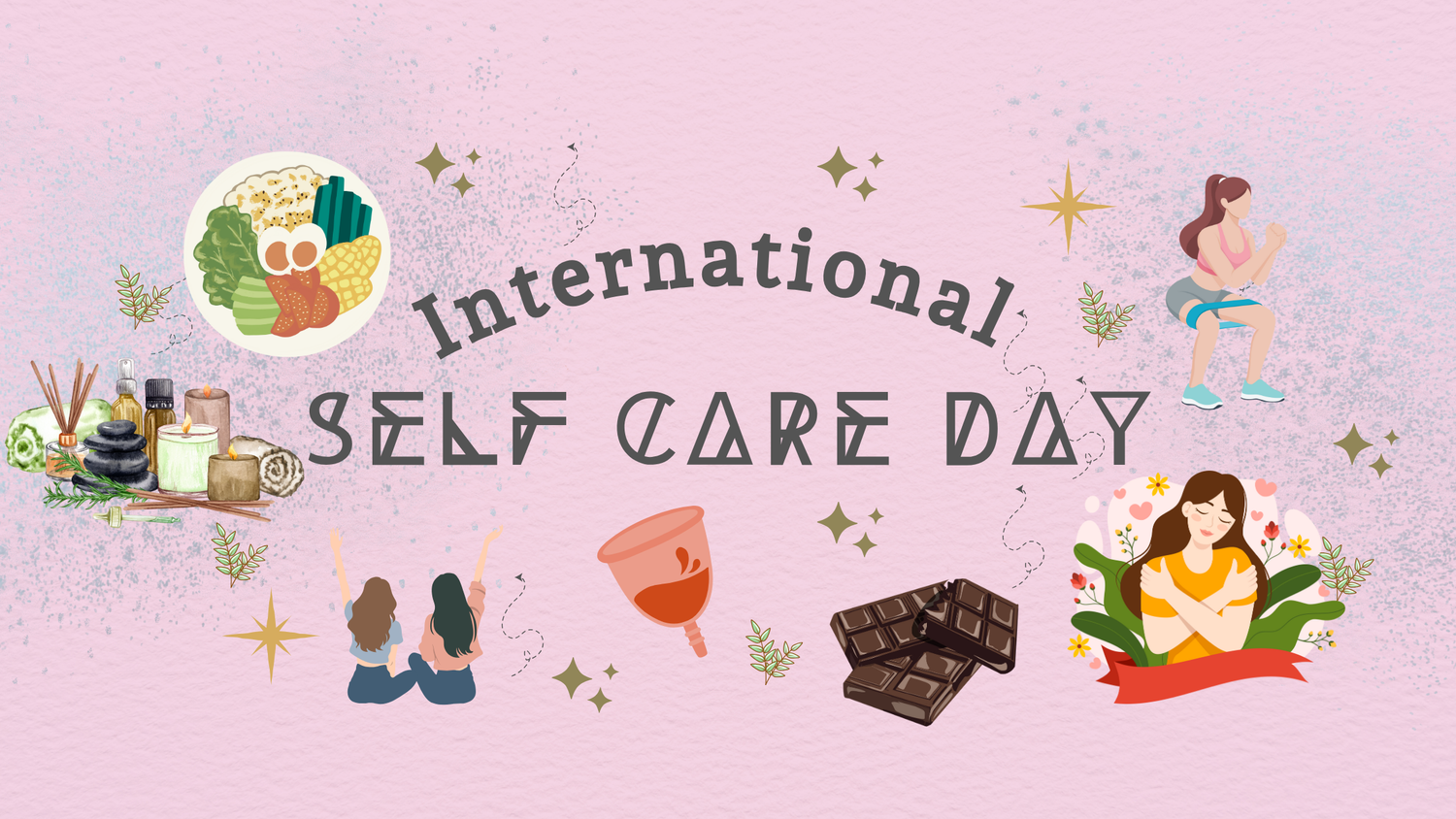Reclaim your energy naturally, even during your heaviest days.
If you've ever found yourself feeling completely drained during your period, you're not alone. That bone-deep exhaustion that comes with a heavy flow isn't just "in your head" — it's a very real physiological response that many women experience. And for those of us with naturally heavy periods or conditions like endometriosis, PCOS, or PMDD, the fatigue can be particularly overwhelming.
Let's break the silence around period fatigue and explore effective, natural ways to reclaim your energy during your cycle. Because you deserve to feel empowered and energetic, even during the heaviest days of your period.
Understanding Period Fatigue: What's Really Happening in Your Body
Before diving into solutions, it helps to understand why you're feeling so exhausted. When you experience heavy menstrual bleeding, your body loses significant amounts of iron with each period. This iron loss can lead to lower hemoglobin levels, reducing your blood's ability to carry oxygen effectively throughout your body.
The result? That all-too-familiar feeling of dragging yourself through the day, battling brain fog, and counting the minutes until you can crawl back into bed.
But fatigue during heavy periods isn't just about iron loss. Your body is also:
- Working hard to shed your uterine lining
- Experiencing hormonal fluctuations that affect your energy levels
- Fighting inflammation, which can drain your resources
- Potentially dealing with disrupted sleep due to discomfort or frequent bathroom trips
No wonder you're tired! Now, let's look at how you can naturally support your body through this process.
1. Prioritize Iron-Rich Foods to Replenish Your Stores
One of the most effective ways to combat period fatigue is to focus on iron-rich foods, especially during and immediately after your period.
Foods to emphasize:
- Dark leafy greens like spinach, kale, and collard greens
- Grass-fed beef and organic liver (if you eat meat)
- Lentils, chickpeas, and beans
- Pumpkin seeds and sesame seeds
- Quinoa and amaranth
- Blackstrap molasses (try a teaspoon in warm water or tea)
Pro tip: Pair these iron-rich foods with vitamin C sources (like lemon juice, bell peppers, or berries) to enhance absorption. And consider reducing tea and coffee around mealtimes, as they can inhibit iron absorption.
2. Stay Hydrated with Intentional Fluids
It might seem counterintuitive when you're already dealing with a heavy flow, but proper hydration is crucial for fighting fatigue. Dehydration can make exhaustion much worse, so focus on quality hydration.
Try these hydrating options:
- Room temperature water with electrolytes
- Mineral-rich herbal teas like nettle, raspberry leaf, or dandelion
- Coconut water for natural electrolytes
- Bone broth for minerals and amino acids
Aim to drink consistently throughout the day rather than large amounts at once, which can overwhelm your system.
3. Embrace Strategic Movement (Not Intense Exercise)
When fatigue hits, the last thing you might want to do is move your body. However, gentle movement can actually help reduce period fatigue by improving circulation and releasing endorphins.
Gentle movement options:
- Slow walking in fresh air
- Gentle stretching or restorative yoga
- Light swimming (if comfortable with your period care)
- Tai chi or qigong practices
The key is to listen to your body and avoid pushing yourself too hard. This isn't the time for high-intensity workouts or pushing through pain.
4. Optimize Your Sleep Environment
Quality sleep becomes even more crucial during your period, when your body needs extra restoration time. Create a sleep sanctuary that supports deep rest.
For better period sleep:
- Keep your bedroom slightly cooler than usual (heavy periods can increase body temperature)
- Use breathable cotton sheets and pajamas
- Consider using a period-proof blanket or mattress protector for peace of mind
- Try a weighted blanket to ease cramps and anxiety
- Keep period supplies and water within easy reach of your bed
Remember that you might need an extra hour of sleep during your period - this isn't laziness, it's what your body genuinely needs during this time.
5. Support Your Hormones with Targeted Nutrition
What you eat during your period can significantly impact your energy levels. Focus on foods that support hormone balance and reduce inflammation.
Energy-supporting foods:
- Healthy fats like avocados, olive oil, and coconut oil
- Complex carbohydrates for sustained energy (sweet potatoes, brown rice, oats)
- Anti-inflammatory foods like berries, fatty fish, and turmeric
- Magnesium-rich foods such as dark chocolate, bananas, and nuts
- Small, frequent meals to maintain blood sugar levels
Many women find that reducing or eliminating inflammatory foods like sugar, alcohol, and highly processed carbohydrates during their period can make a significant difference in energy levels.
6. Consider Upgrading Your Period Products
The products you use during your period can actually impact your comfort and energy levels. Many women with heavy flows find that traditional products require frequent changing and can cause discomfort or anxiety about leaking.
Menstrual cups and discs can be game-changers for those with heavy periods. These reusable options can:
- Hold significantly more than tampons or pads (up to 3 regular tampons' worth)
- Be worn for up to 12 hours, reducing the need for frequent bathroom trips
- Create less pressure on the vaginal canal compared to tampons
- Allow for more natural flow without obstruction
- Eliminate exposure to chemicals found in many conventional products (Why are there toxin metals in my tampons?)
Many women report that switching to cups or discs actually reduced their flow and cramping over time, which can help with overall energy levels.
7. Address the Root Cause with Natural Hormone Support
While managing symptoms is important, addressing the potential root causes of heavy periods can lead to long-term improvements in both flow volume and fatigue.
Hormone imbalances often contribute to heavy periods, and natural supplements can help restore balance over time. Key ingredients to look for include:
- Vitex (Chasteberry): Helps regulate hormone levels naturally and can reduce heavy bleeding by balancing progesterone and estrogen levels
- Melissa (Lemon Balm): Nature's answer to period pain relief, which also helps reduce anxiety and promotes better sleep
- Inositol: Supports insulin sensitivity and hormone regulation, particularly beneficial for those with PCOS
- B Vitamins: Essential for energy production and hormone metabolism
- Zinc and Selenium: Support thyroid function and overall hormone balance
Rather than piecing together multiple supplements, finding a comprehensive formula like Balance Me that combines these key ingredients can be an effective and convenient approach to addressing hormone imbalances that contribute to heavy periods and fatigue. Learn more about our powerful supplement here.
FAQ: Your Period Fatigue Questions Answered
Q: How can I boost energy during heavy periods naturally?
A: Focus on iron-rich foods, stay hydrated, get plenty of rest, engage in gentle movement, and consider supplements that support hormone balance. Also ensure you're consuming enough calories – your body needs fuel during menstruation.
Q: What foods help with period fatigue?
A: Iron-rich foods (leafy greens, lentils, grass-fed beef), complex carbohydrates (brown rice, sweet potatoes), healthy fats (avocados, nuts, seeds), and magnesium-rich foods (dark chocolate, bananas) can all help combat period fatigue.
Q: What are natural remedies for extreme tiredness during menstruation?
A: Natural remedies include iron-rich herbs like nettle and yellow dock, adaptogenic herbs like ashwagandha for energy support, magnesium supplements to improve sleep quality, and B-complex vitamins for energy production.
Q: Why am I so exhausted during my period?
A: Period fatigue stems from several factors: iron loss from bleeding, hormonal fluctuations (especially dropping estrogen), inflammation in the body, potential sleep disruptions, and the energy your body uses to shed the uterine lining.
Q: What are the best iron-rich foods for heavy menstrual bleeding?
A: The best iron-rich foods include organ meats (especially liver), grass-fed beef, dark leafy greens, blackstrap molasses, lentils, pumpkin seeds, and quinoa. Combining these with vitamin C foods enhances absorption.
Taking the Next Step Toward Period Wellness
Living with heavy periods doesn't mean you have to accept exhaustion as inevitable. By implementing these natural strategies, you can significantly reduce fatigue and reclaim your energy during your cycle.
For many women, the combination of proper nutrition, adequate rest, gentle movement, and targeted supplements creates a noticeable improvement within just 2-3 menstrual cycles.
Remember that finding what works for your unique body may take some experimentation. Be patient with yourself, and celebrate small improvements along the way.
If you're ready to take a more holistic approach to period wellness, consider exploring the benefits of menstrual cups or discs for heavy flow management, and natural hormone support like Balance Me to address potential root causes of heavy bleeding.
Your journey to more energetic periods starts with these small but powerful changes – because you deserve to thrive during every phase of your cycle.
Remember, you're not alone in this journey. Our inbox is always open if you need guidance or just want to share your experience – we're all in this together!
With care and understanding,
Heidi xx
This article is for informational purposes only and does not constitute medical advice. If you experience extremely heavy periods or severe fatigue, please consult with a healthcare provider.





